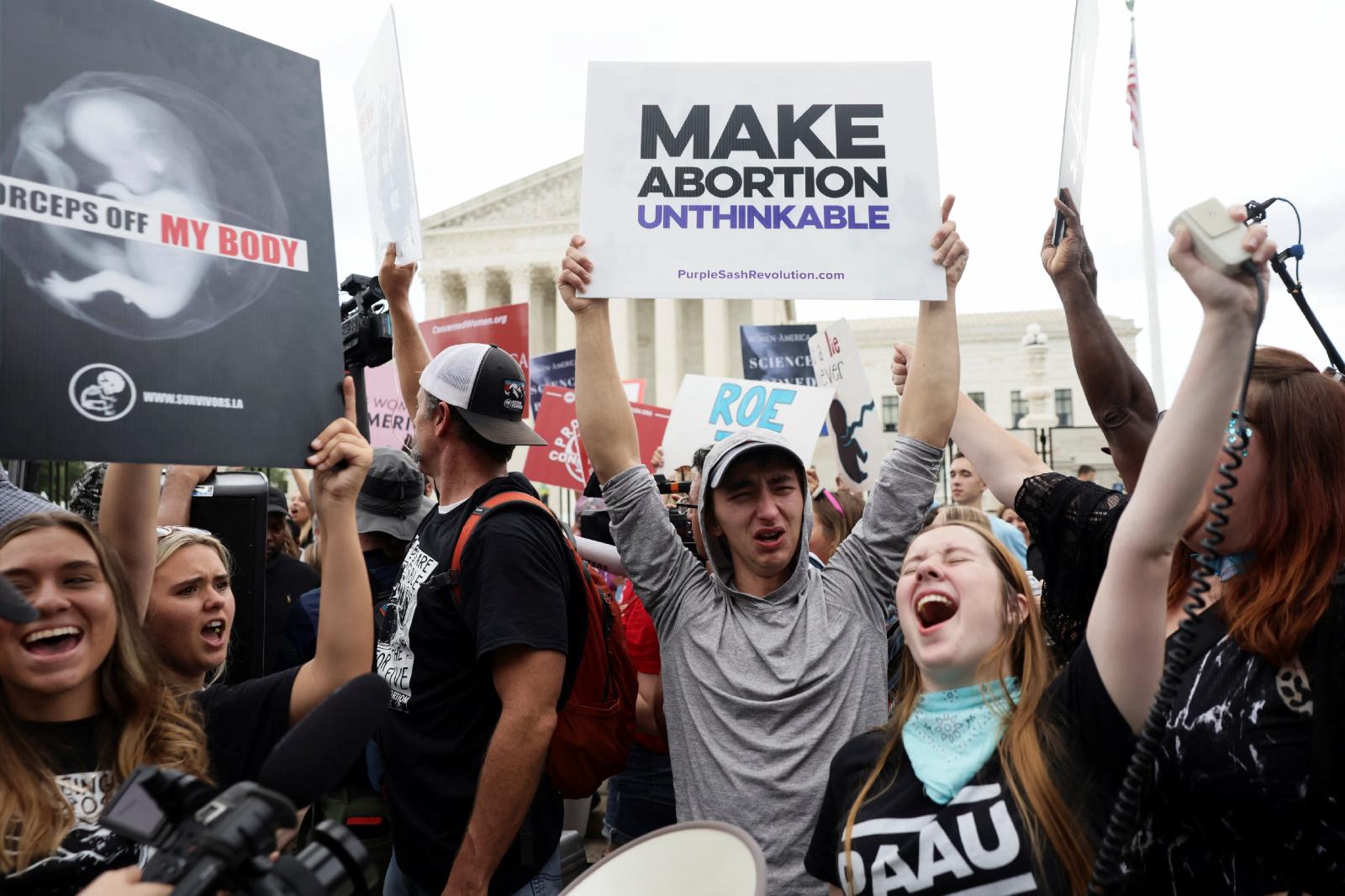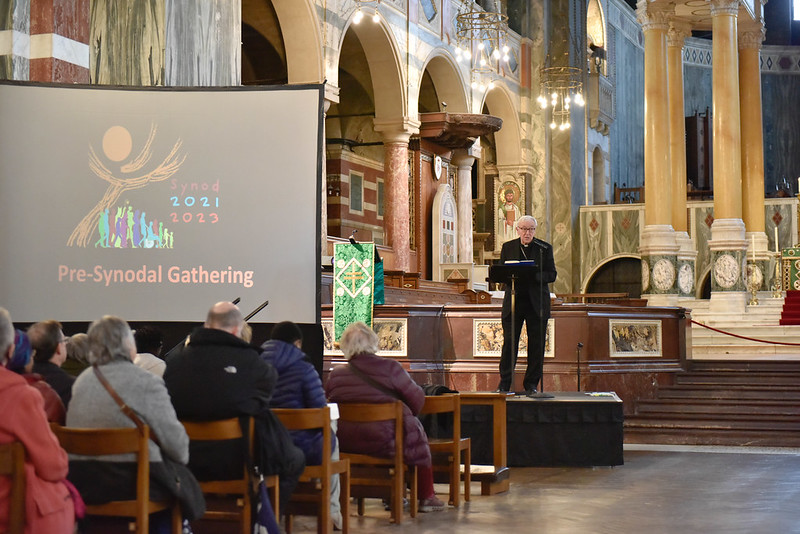Catholics in England and Wales are calling for the Church to become more inclusive, end clericalism and better use the gifts of women, a groundbreaking national synod report has revealed.
The document synthesising the findings of diocesan synods, which took place as part of Pope Francis’ global reform efforts, has revealed a groundswell of opinion for a Church where priests and lay people collaborate and ordinary believers are formed as missionary disciples.
For many of the estimated 30,000 Catholics who took part in the synod, the process was described as a “revelation” and consistently showed the hope for “a loving, merciful, familial and missionary Church in which all are involved” and one which is “open to the guidance of the Spirit”.
But the National Synthesis Document makes a bracing challenge to the Church in England and Wales, including its leaders, to reshape their pastoral priorities so the Catholic community can become more synodal, participatory and focused on evangelisation.
The document, which was completed on the 22 June, the Feast of Sts John Fisher and Thomas More, has now been circulated to bishops and diocesan leaders across England and Wales with the bishops gathering to discuss the document next week. The hierarchy is expected to submit the synthesis text to the Holy See’s synod office, but could also send its own reflection document to Rome.
The role of women, including the “failure” to “make good use” of their contribution and their exclusion from formal ministries, was described as a “constant theme” in diocesan reports. “On the whole women were not considered a marginalised minority so much as a silenced, unrecognised majority whose gifts lie unwrapped and ignored in the parish narthex,” the report states. There is a call to allow women to preach the homily during Mass while “sadness and frustration” that women’s views are not taken seriously or treated as second class “permeate all the reports”.
Ordinary believers feel disempowered and distanced from the official organs of the Church while the clerical sexual abuse crisis continues to be a “source of shame and humiliation.”
Clericalism is identified as a root cause of the abuse crisis as it encouraged a self-serving attitude aimed at protecting the institution. Catholics now want a new way for priests and laity to relate to each other. The document states: “Clericalism is constantly invoked in the reports to describe a resistance on the part of priests and some lay people to the exercise of co-responsibility and the missionary discipleship to which all the baptised are called.”
An overhaul of formation for lay people and clergy is called for. Almost every diocesan submission talks about the “thirst for formation”, which shows that “those who took part in the synod are offering themselves for mission and asking for permission and the means to carry it out.”
A lack of training, including in the areas of Church teaching, scripture and spirituality, has left practising Catholics “ill-equipped” to respond to the call to evangelise. Meanwhile, there were “many calls” for the training of priests to be reformed so that “priests understand they serve the parish rather than the other way round.” The report added: “a common complaint is that the community life and culture of the parish are subject to the whims of the incoming priest, who can undo in an instant what has taken years to build.”
LGBTQ+ Catholics often feel excluded or sidelined with stories shared during the synod which show how “gay people are singled out or made unwelcome” and are the “subject to prejudice and hostility”. The official description of same-sex orientation as “intrinsically disordered” was raised and one diocesan report said there is “a widespread view was that people shouldn’t be punished because of who they are attracted to”. A strong call was made actively to listen to LGBTQ+ Catholics, accompany them and “offer healing for past damage”.
The report lists LGBTQ+ Catholics among a host of "marginalised groups” which include women, LGBTQ+ Catholics, young people, divorced and remarried Catholics, the Traveller community, those with additional needs, people of colour and traditionalists devoted to the Old Rite liturgy. The latter, described as “very few in number”, say they feel “sadness and anger” about the restrictions issued by the Pope’s restrictions on the pre-Second Vatican Council liturgy.
“The model of a welcoming Church was perceived to be particularly compromised by the failure to integrate certain groups or categories of people whom the reports describe as alienated or marginalised,” it states.
The report emphasises that a better future for the Church in England and Wales is possible through the “art of accompanying” where laity, religious, clergy and bishops work together, in their different roles, as “missionary disciples” and make use of synodal bodies such as parish pastoral councils.
Participation in the synod varied dramatically from diocese to diocese. There was, the report states, “a portion of the clergy” that resisted the synod process while former Anglican priests “cited negative experiences of synodical parliamentary-style governance”.
Some dioceses “invested considerable resources of time and people” while in others there “was less enthusiasm and sometimes reluctance” and resistance. Where dioceses used questionnaires rather than making time for gathering in spiritual conversation “the experience was felt to be considerably poorer”.
The highest reported parish engagement was 93 per cent, while the lowest was 34 per cent.
For those that did take part, the synod process was “transformative” and led them to be hopeful that “synodality be shared across the Church and be embedded in its daily life”. The report adds: “Synodality is the real work of the Spirit and what the Church needs.”
The global synod, “For a Synodal Church: Communion, Participation, Mission”, began last October and is described as the most ambitious Catholic reform project in 60 years.
Every diocese was asked by the Pope to hold a synod while bishops’ conferences are now in the process of submitting the findings from dioceses to the Holy See’s synod office. An initial working document will be produced in the Autumn to guide the second phase of the synod which is taking across different regions of the world. The synod will culminate in an October 2023 assembly due to take place in the Vatican.
The synthesis document was drawn up by a team including: Members of the national synthesis team are Sarah Adams, director of the department for adult education and evangelisation for the Clifton diocese, Dominic Belli of Menevia, papal biographer Dr Austen Ivereigh, Dr Mary McCaughey, lecturer in theology at St Mary’s College, Oscott, Dr Mark Nash, director of the agency for evangelisation and catechesis for Southwark, Fr Jan Nowotnik, director of mission for the bishops’s conference, Sr Elaine Penrice FSP, Daughter of St Paul and director of the national office for vocation, Canon Christopher Thomas, general secretary of the bishops’ conference, Kate Wilkinson of Liverpool and with episcopal oversight from Archbishop of Southwark John Wilson and Bishop of Leeds Marcus Stock.



 Loading ...
Loading ...